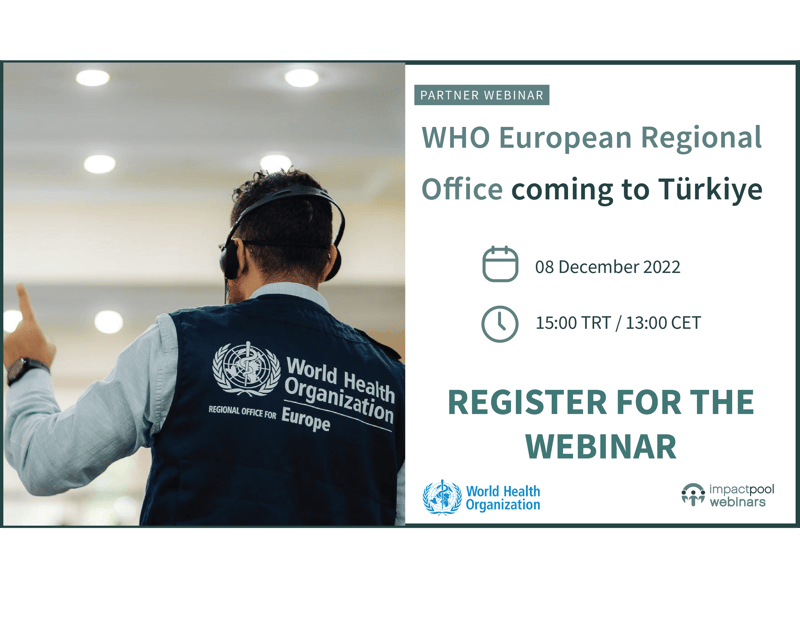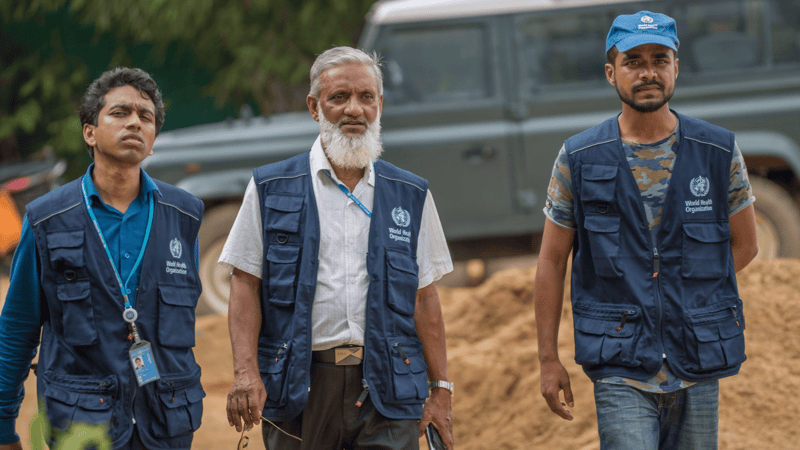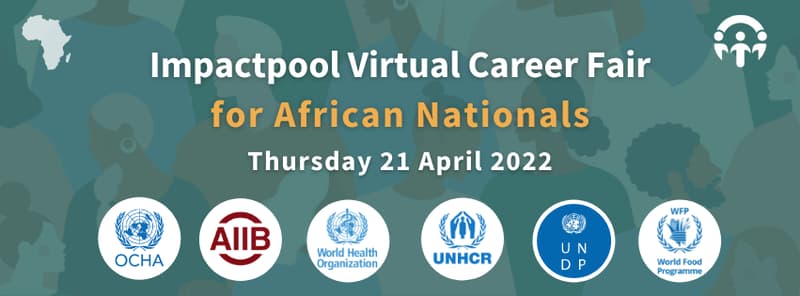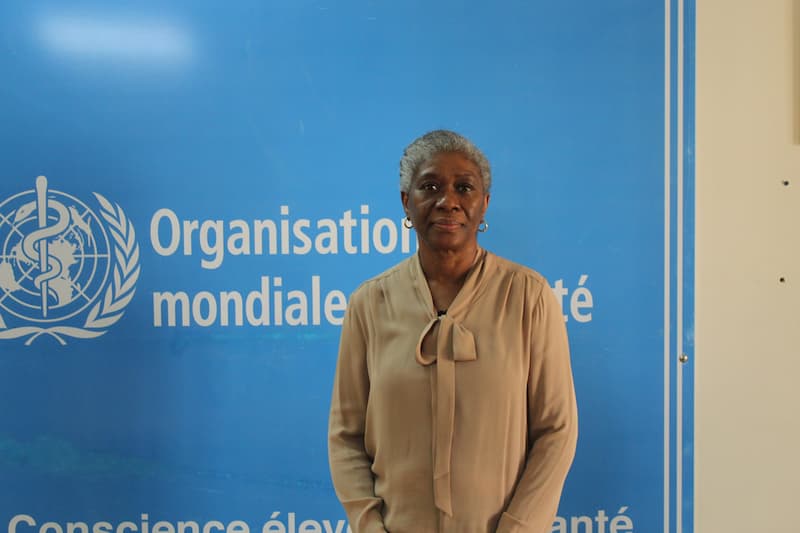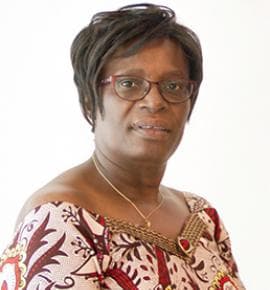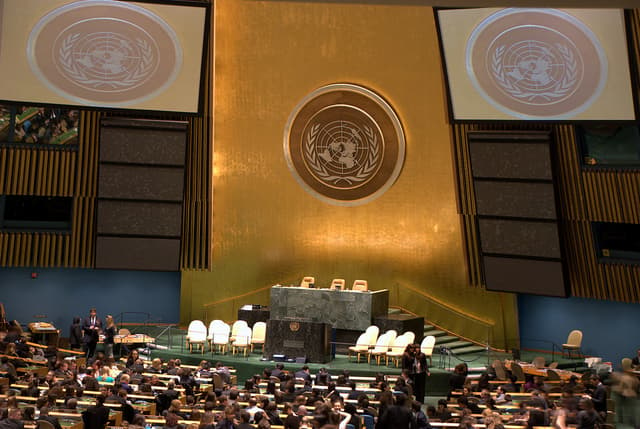Team Lead, Emergency Operations
Cairo
- Organization: WHO - World Health Organization
- Location: Cairo
- Grade: Senior level - P-5, International Professional - Internationally recruited position
-
Occupational Groups:
- Operations and Administrations
- Medical Practitioners
- Humanitarian Aid and Coordination
- Emergency Aid and Response
- Managerial positions
- Closing Date: 2023-11-29
OBJECTIVES OF THE PROGRAMME
The mission of WHO's Health Emergencies Programme (The Programme) is to build the capacity of Member States to manage health emergency risks and, when national capacities are overwhelmed, to lead and coordinate the international health response to contain outbreaks and to provide effective relief and recovery to affected populations.The Emergency Operations Unit of the Health Emergencies Programme is responsible for ensuring that emergency-affected populations have access to timely and effective health services and that they are able to cover their basic needs. This includes ensuring a strong emergency management system (based on incident management), effective and inclusive coordination mechanisms, joint assessments and planning by partners of WHO's response and the response with partners, implementation of operations and services according to agreed standards, and close collaboration with logistics and operational support. The expansion and strengthening of operational partnerships is a key priority in order to optimize the response. EMO also leads on humanitarian policy and guidance and in this context develops new standards and shapes the global policy of the response to health emergencies. Finally, EMO engages in, representation to key interagency bodies.
DESCRIPTION OF DUTIES
Within the framework of the delegated authority, the incumbent is assigned all or part of the following duties which are performed according to the needs and agenda:
- Oversee the effective functioning of country support at regional level. Ensure that the team is supporting effectively the coordination between the three levels on technical and operational matters.
- Roll out Incident Management System (IMS) and ensure the coordination of corporate response through the EOC as defined in the Emergency Response Framework (ERF).
- Play leading role in monitoring the progress and effectiveness of WHO operations at regional level in close collaboration with Health Information Management Department; advise senior management of related priorities and issues; and capture lessons learned and promote their integration into broader WHO policy and practice, especially in collaboration with other units within and outside of the programme.
- Facilitate and stimulate WHO and partners contributions in support of country response operations with particular attention to partnership, planning, human resources, logistics, resource mobilization, monitoring and information-sharing.
- Play leading role in promotion of the overall strategic, operational and technical coherence and consistency of WHO emergency operations, including through strengthened support to the design of programmes and development of Humanitarian Response Plans.
- Ensure adherence to / implementation of public health guidelines and best practices, planning for response and early recovery and WHO's humanitarian planning process (Consolidated Appeals Process (CAP)/Common Humanitarian Action Plan (CHAP)/ flash appeals) and undertake contingency planning.
- Coordinate technical and operational support from headquarters and other sources, in support to operations for designated protracted and on-going emergencies, in line with technical standards (e.g. Sphere), best practices, protocols and guidelines (e.g. IASC).
- Liaise with technical departments across the Organization and support a selected number of country offices on issues related to the response to health emergencies.
- Lead the contribution of the team to capacity-building, training activities and exercises to strengthen operational capacities of WHO and partners; maintain and update policies, technical standards, guidelines and Standard Operating Procedures (SOPs), ensuring the adherence to interagency policies.
- Supervise a team of Health Emergency Officers in the performance of their roles and responsibilities, ensuring that the regional office's support is timely and effective.
- Provide support for humanitarian resource mobilization efforts by providing timely information on technical and operational needs in country in crisis.
- Work in close collaboration with the Emergency Planning and Management in identifying administrative and planning issues that require immediate action as well as with the other units of the WHE programme such as Infectious Hazard Management (IHM), Country Health Emergency and IHR (CPI), and Health Emergency Information and Risk Assessment (HIM).
- Provide regular (weekly) updates to senior management of key developments, challenges and operational implications for all Grade 3 and Grade 2 (infectious) emergencies for which the staff member is the focal point; alert senior management of relevant operational and security issues at country level in a timely manner; contribute to the development of briefings for senior staff and to the development of communications products.
- As assigned, advise other WHE units in the development and review of information products and briefings, such as talking points for press briefings, donor-related briefs and reports and other communication materials, to enhance WHO and WHE visibility at time of emergencies.
- Participate in the regional-level Emergency Support Team for acute emergencies as needed; deploy immediately to acute emergencies, as requested. Represent WHO to external stakeholders, including donors and partners, with respect to specific country operations.
- Develop and disseminate the humanitarian policy and guidance documents on specific issues related to the response of health emergencies.
REQUIRED QUALIFICATIONS
Education
Essential: Advanced degree (Master's degree) in medicine, public health or health related discipline.
Desirable: Specialization or specific training on health emergency and/or management.
Experience
Essential: At least ten years' field experience in implementing emergency humanitarian response operations across all phases of the disaster cycle. Managing and implementing operations in contexts of protracted and graded emergencies and in developing countries. Strong knowledge in developing and implementing public health policies and strategies in the context of emergencies is an asset.
Desirable: Experience with WHO, UN or UN agency or a health cluster member organization including the development of global strategies, guidelines and tools for emergency actions. Knowledge in epidemiology or international humanitarian law and human rights is an asset.
Skills
- Proven experience and expertise in the management of the health response to humanitarian emergencies and outbreaks; extensive technical knowledge, and operational skills, including early recovery/transition, combined with knowledge of UN, interagency humanitarian systems and process.
- Excellent communication skills to negotiate/enlist cooperation from a broad range of actors from multi-disciplinary backgrounds.
- Strong organizational skills complemented with ability to work in a proactive and independent manner, multi-task and produce results under pressure.
- Ability to work under pressure and in contexts affected by conflict. Diplomacy, tact and discretion.
WHO Competencies
Enhanced WHO Global Competency Model: https://www.who.int/employment/WHO_competencies_EN.pdf?ua=
- Teamwork
- Respecting and promoting individual and cultural differences
- Communication
- Moving forward in a changing environment
- Producing results
- Creating an empowering and motivating environment
Use of Language Skills
Essential: Expert knowledge of English.
Desirable: Intermediate knowledge of other UN language .
REMUNERATION
WHO salaries for staff in the Professional category are calculated in US dollars. The remuneration for the above position comprises an annual base salary starting at USD 92,731 (subject to mandatory deductions for pension contributions and health insurance, as applicable), a variable post adjustment, which reflects the cost of living in a particular duty station, and currently amounts to USD 2148 per month for the duty station indicated above. Other benefits include 30 days of annual leave, allowances for dependent family members, home leave, and an education grant for dependent children.
ADDITIONAL INFORMATION
- This vacancy notice may be used to fill other similar positions at the same grade level
- Only candidates under serious consideration will be contacted.
- A written test and/or an asynchronous video assessment may be used as a form of screening.
- In the event that your candidature is retained for an interview, you will be required to provide, in advance, a scanned copy of the degree(s)/diploma(s)/certificate(s) required for this position. WHO only considers higher educational qualifications obtained from an institution accredited/recognized in the World Higher Education Database (WHED), a list updated by the International Association of Universities (IAU)/United Nations Educational, Scientific and Cultural Organization (UNESCO). The list can be accessed through the link: http://www.whed.net/. Some professional certificates may not appear in the WHED and will require individual review.
- According to article 101, paragraph 3, of the Charter of the United Nations, the paramount consideration in the employment of the staff is the necessity of securing the highest standards of efficiency, competence, and integrity. Due regard will be paid to the importance of recruiting the staff on as wide a geographical basis as possible.
- Any appointment/extension of appointment is subject to WHO Staff Regulations, Staff Rules and Manual.
- Staff members in other duty stations are encouraged to apply.
- The WHO is committed to creating a diverse and inclusive environment of mutual respect. The WHO recruits and employs staff regardless of disability status, sex, gender identity, sexual orientation, language, race, marital status, religious, cultural, ethnic and socio-economic backgrounds, or any other personal characteristics.
- The WHO is committed to achieving gender parity and geographical diversity in its staff. Women, persons with disabilities, and nationals of unrepresented and underrepresented Member States (
https://www.who.int/careers/diversity-equity-and-inclusion
- ) are strongly encouraged to apply.
- Persons with disabilities can request reasonable accommodations to enable participation in the recruitment process. Requests for reasonable accommodation should be sent through an email to
reasonableaccommodation@who.int
- An impeccable record for integrity and professional ethical standards is essential. WHO prides itself on a workforce that adheres to the highest ethical and professional standards and that is committed to put the WHO Values Charter into practice.
- WHO has zero tolerance towards sexual exploitation and abuse (SEA), sexual harassment and other types of abusive conduct (i.e., discrimination, abuse of authority and harassment). All members of the WHO workforce have a role to play in promoting a safe and respectful workplace and should report to WHO any actual or suspected cases of SEA, sexual harassment and other types of abusive conduct. To ensure that individuals with a substantiated history of SEA, sexual harassment or other types of abusive conduct are not hired by the Organization, WHO will conduct a background verification of final candidates.
- Mobility is a condition of international professional employment with WHO and an underlying premise of the international civil service. Candidates appointed to an international post with WHO are subject to mobility and may be assigned to any activity or duty station of the Organization throughout the world.
- WHO also offers wide range of benefits to staff, including parental leave and attractive flexible work arrangements to help promote a healthy work-life balance and to allow all staff members to express and develop their talents fully.
- The statutory retirement age for staff appointments is 65 years. For external applicants, only those who are expected to complete the term of appointment will normally be considered.
- Please note that WHO's contracts are conditional on members of the workforce confirming that they are vaccinated as required by WHO before undertaking a WHO assignment, except where a medical condition does not allow such vaccination, as certified by the WHO Staff Health and Wellbeing Services (SHW). The successful candidate will be asked to provide relevant evidence related to this condition. A copy of the updated vaccination card must be shared with WHO medical service in the medical clearance process. Please note that certain countries require proof of specific vaccinations for entry or exit. For example, official proof /certification of yellow fever vaccination is required to enter many countries. Country-specific vaccine recommendations can be found on the WHO international travel and Staff Health and Wellbeing website. For vaccination-related queries please directly contact SHW directly at shws@who.int.
- WHO has a smoke-free environment and does not recruit smokers or users of any form of tobacco.
- For information on WHO's operations please visit: http://www.who.int.
- In case the website does not display properly, please retry by: (i) checking that you have the latest version of the browser installed (Chrome, Edge or Firefox); (ii) clearing your browser history and opening the site in a new browser (not a new tab within the same browser); or (iii) retry accessing the website using Mozilla Firefox browser or using another device. Click this link for detailed guidance on completing job applications: Instructions for candidates

